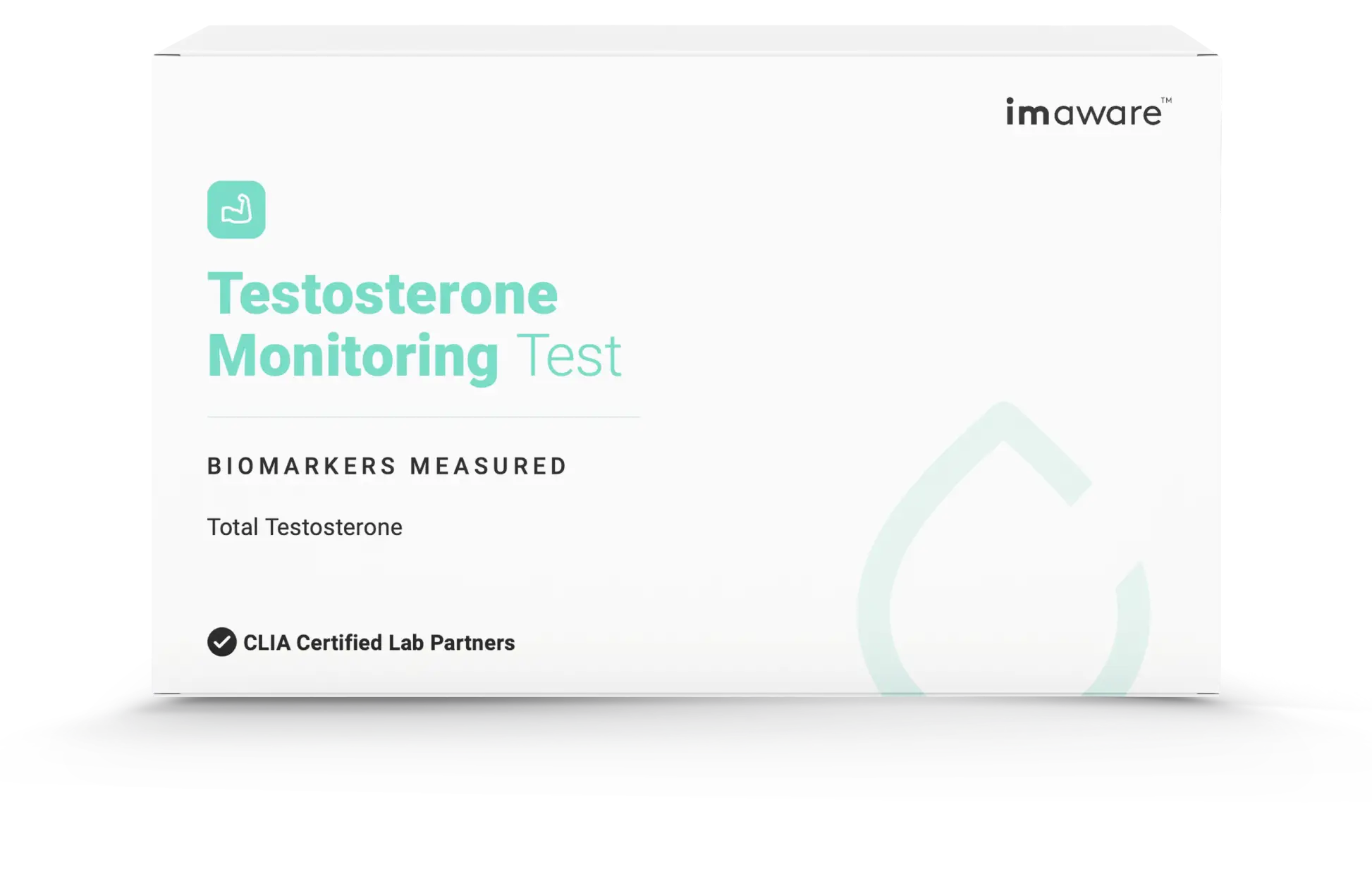What is testosterone?
Testosterone is the sex hormone produced by the testicles and, in smaller amounts, by the ovaries. People with testicles tend to have higher levels of testosterone because it plays a large role in male sexual development. Testosterone is referred to as the muscle-building hormone because it increases muscle mass and bone in both sexes.
What does testosterone test for?
Healthcare professionals can use this information to help identify a range of conditions, such as erectile dysfunction and pituitary disorders in those with testicles, and infertility and low sex drive. This test can also be used to monitor testosterone levels of those undergoing hormone replacement therapy.
When should I test for testosterone?
It is recommended that you test your testosterone levels if you are experiencing symptoms of low testosterone, which include changes in sexual function (e.g., lower sexual desire, fewer spontaneous erections, and infertility), increased body fat, reduced muscle mass, decreased bone density, and emotional changes¹.
What is a normal total testosterone level?
The imaware medical advisory board recognizes the following levels for total testosterone for adult men:
- 400–600 ng/dL is considered normal
- 600–800 ng/dL is optimal
At this time, the imaware testosterone test is for use in males only. We look forward to offering a female test soon.
What does a low level of testosterone mean?
Testosterone levels in people with testicles naturally decrease with age, a process distinct from male hypogonadism, which occurs when the testicles fail to produce testosterone. The risk of male hypogonadism is increased by many conditions, including type 2 diabetes, HIV infection, or if the testicles are removed to treat cancer.
How can I improve my testosterone levels?
Evidence exists for natural methods that may boost your testosterone levels, including exercising more², getting plenty of good sleep³, reducing stress⁴, and avoiding excessive alcohol⁵. While evidence of causation is unclear, these lifestyle choices have many other health benefits besides potentially increasing your testosterone.
Testosterone-replacement therapy may be a viable option for those with low testosterone.

References
- Mayo Clinic. Sexual health. Testosterone therapy: Potential benefits and risks as you age. Available from: https://www.mayoclinic.org/healthy-lifestyle/sexual-health/in-depth/testosterone-therapy/art-20045728
- Piedmont Healthcare. The best exercises to increase testosterone. Available from: https://www.piedmont.org/living-better/the-best-exercises-to-increase-testosterone
- Leproult R, Van Cauter E. Effect of 1 week of sleep restriction on testosterone levels in young healthy men. JAMA 2011;305(21):2173–2174.
- American Psychological Association. Stress effects on the body. Available from: https://www.apa.org/topics/stress/body
- Emanuele MA, Emanuele NV. Alcohol's effects on male reproduction. Alcohol Health Res World 1998;22(3):195–201.
- Mayo Clinic Laboratories. Test ID: TTFB. Testosterone, total, bioavailable, and free, serum. Available from: https://www.mayocliniclabs.com/test-catalog/Clinical+and+Interpretive/83686

